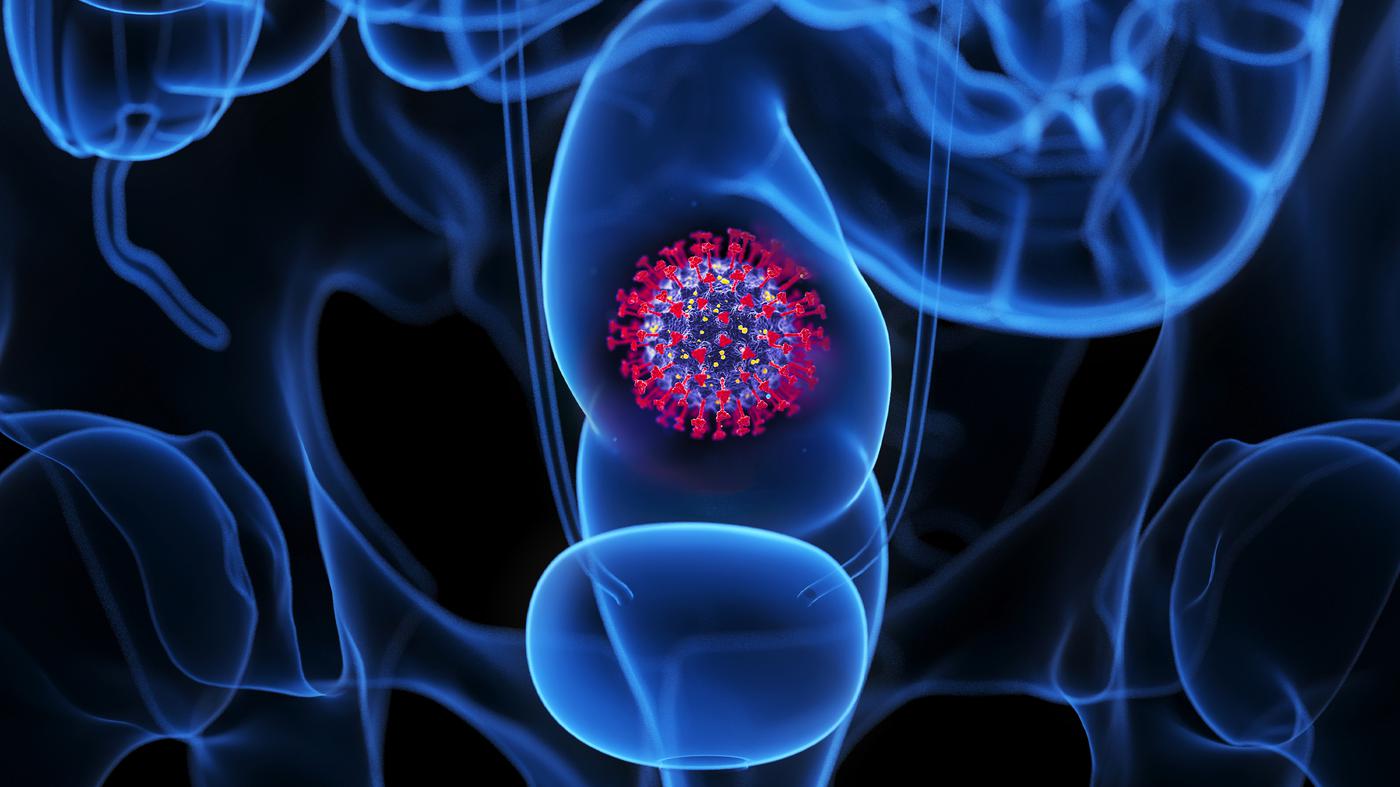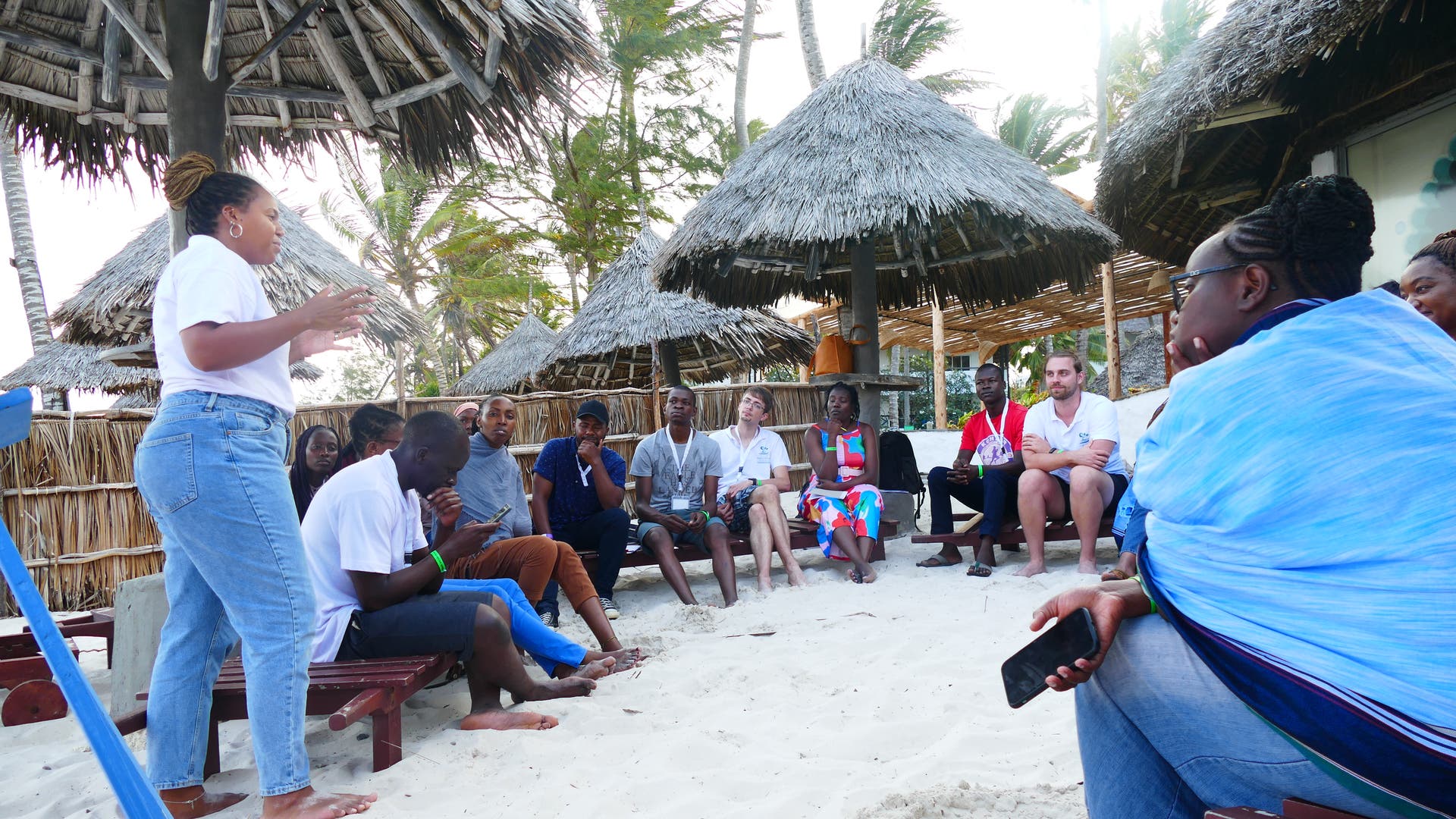Marilyn Ronoh, a 35-year-old mathematician, was one of the first female scientists to graduate from the Mawazo program. That was in 2017, shortly after the institute was founded. She is now a mentor and coaches her fellow youth. In the “summer school” they learn, among other things, the programming language Python, with which they can create websites and evaluate data.
Conjuring mathematical formulas and functions on the flipboard, her classmates put their heads together and follow the seemingly endless columns of numbers flashing across the screens. What might remind outsiders of the specialty of unworldly nerds in the ivory tower is a piece of the jigsaw on the way to a more livable Africa. Python is a foundation for mathematical models and aims to help young researchers process information.
© Isabelle Stetten (detail)
Marilyn Ronoh | The mathematician herself completed the program at the Mawazo Institute. Today, she is a mentor and wants to get young women researchers in Africa interested in mathematics.
Pupils and scholarship holders must lose their fear of science
Ronoh himself works a lot with stats. She encourages young schoolgirls to lose their fear of science. “My research at the University of Nairobi is focused on understanding the dynamics of HIV transmission,” says Marilyn Ronoh. Mathematical models are used to examine the effect of treatments, tests, and educational campaigns on the prevalence of HIV. It only worked when the two kids were asleep. “I filled out funding applications at night, researched at night, and wrote my PhD thesis at night.”
About 600 kilometers northwest of the seminar room in Watamu: Lillian Kongani sits at a co-working space desk on the tenth floor of a high-rise building in Nairobi. From here you can enjoy views of the capital, all the way to Riverside Drive. From here, Mawazu employees organize workshops for young scientists. Lillian Kongani is one of them. She is about to meet the Program Director to talk to her about her scholarship.
© Sala Lewis (details)
Lillian Konjani | For her Ph.D., Lillian Kongani dealt with climate change.
Lillian Kongani grew up in a village near the equator. Daily life in the country, as experienced by many Kenyans. Women carry packages from water points to huts. Women carrying firewood from the forest. Men have responsibilities. Kong’ani’s mother struggled to raise her and her nine other siblings. The father, a teacher, married two women and fathered a total of 27 children.
How did a single mother get her Ph.D
There are better starting conditions. But Kongani was ambitious and a good student. From an early age, she was bothered by the fact that forests were disappearing in her area, rivers were becoming polluted and the air was polluted. She wanted to prevent that, she wanted to teach, something to do with nature conservation. September 23, 2022: The University of Nairobi awards Lillian Konjani a PhD in Climate Science and Environmental Management. The first in her family. Kongani is 36 years old today. It took her a little longer to get that title, as as a single parent she had to take care of her son and it shows that women still have social hurdles to overcome. She wrote her dissertation on climate change, renewable energies and resulting conflicts.

“Alcohol buff. Troublemaker. Introvert. Student. Social media lover. Web ninja. Bacon fan. Reader.”






More Stories
“Time seems to cure long Covid.”
Science: The use of artificial intelligence is changing the way hospitals operate
Simple recipe: sweet cream cheese slices from the tray